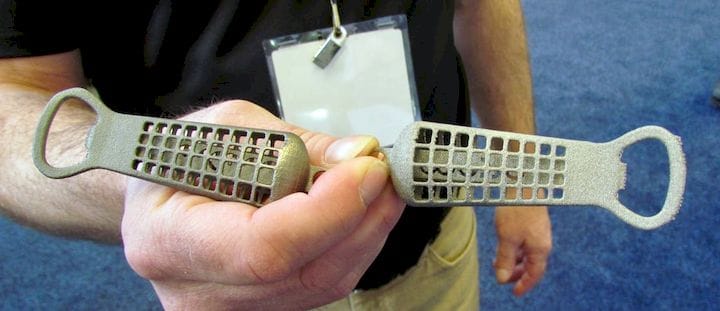![PostProcess Technologies’ before and after magic will soon appear in Europe [Source: Fabbaloo]](https://fabbaloo.com/wp-content/uploads/2020/05/image-asset_img_5eb0a3a8d6c28.jpg)
PostProcess Technologies is opening up a European operation.
The Buffalo, NY-based company has made big strides in the 3D print world through the introduction of their extensive line of post processing equipment, which, as you might imagine, inspired their company name.
They have created a line of equipment that addresses what they correctly call the third step in additive manufacturing, post processing, along with the prior design and print stages.
Their founders correctly foresaw the need for sophisticated equipment at this third stage, just as there was sophisticated software and hardware at each of the prior stages. For post processing, they specifically saw the need for surface finishing and support removal. These were clearly things that needed to be done, and equipment and processes were developed by several companies to do so, especially companies marketing printers that required those functions.
But PostProcess Technologies saw something else: the need to do these functions at scale. They correctly foresaw the emergence of production 3D printing in which not only large quantities of 3D prints would require post processing, but having it done in a highly consistent manner from piece to piece.
That’s what they have developed: a system that can be used at scale to remove supports in a highly efficient manner, and similarly use mechanical processes to smooth the surfaces of inevitably layered 3D prints. Their equipment’s running parameters have been carefully tuned after thousands of operations to ensure the optimum result.
They even have a special unit designed to capture and purify liquid wastes in order to ensure they can be safely disposed of. It seems that PostProcess Technologies has thought of the entire customer lifecycle.
Now the company has launched a European branch to address the significant amount of 3D printing taking place on that continent. They’re following a familiar process: opening a local operation, in this case, based in Nice, France.
This is a wise choice, because we’ve seen other US companies attempt to market to this diverse region remotely, only to fail due to misunderstandings of their market. The best and proven way to succeed is to open a local branch and staff it with people who do indeed understand the area.
This is the same approach taken by several other 3D printing companies, most notably MakerBot and Formlabs, both of whom succeeded in their European ventures with this method.
Will PostProcess Technologies succeed as well?











